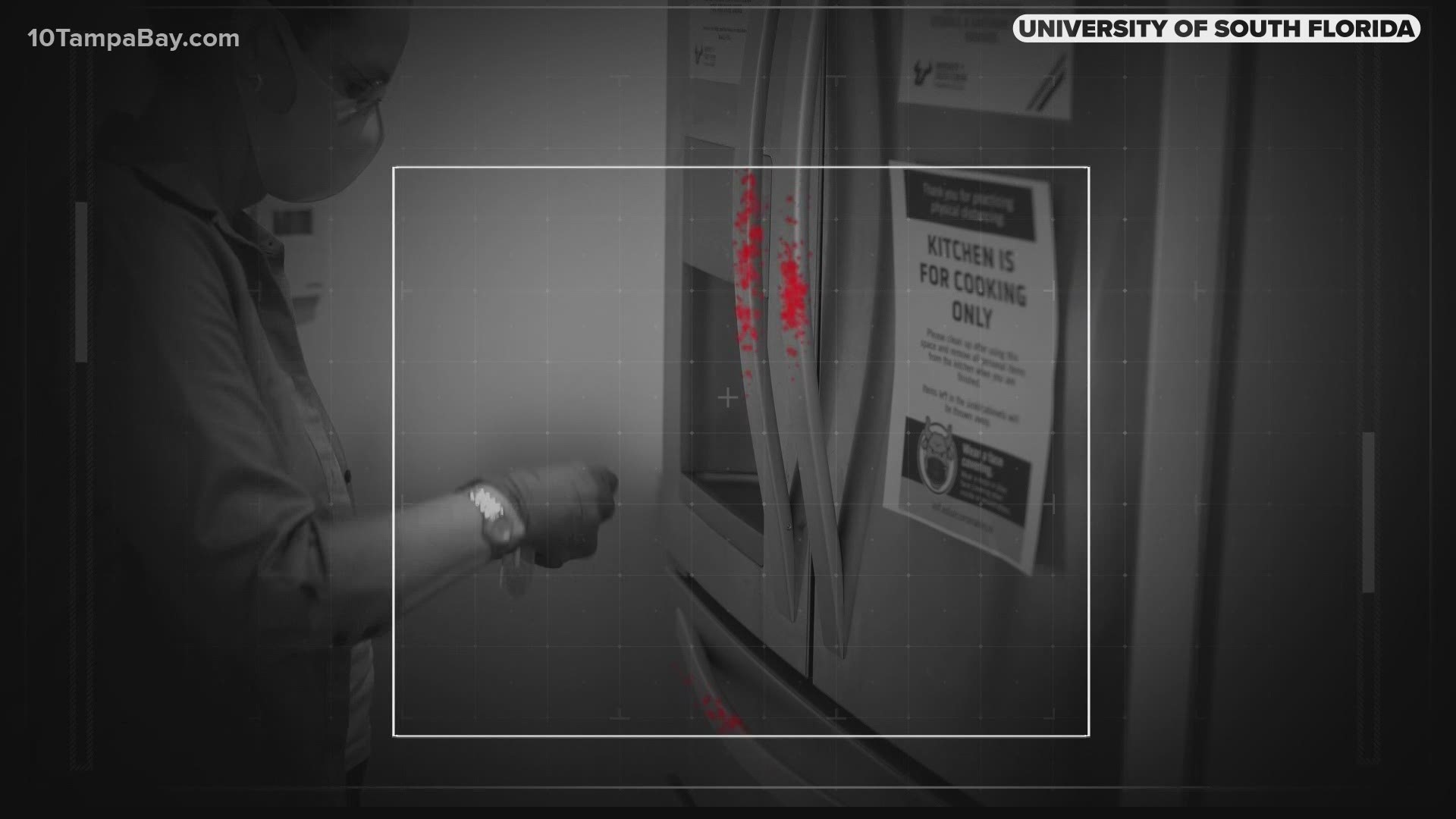TAMPA, Fla. — How do you track something that's invisible and barely leaves a trace? That's what the COVID-19 Task Force at the University of South Florida asked themselves before starting the semester.
“What we have been looking for since March, is to try to understand the virus. We’re trying to understand how it is spread, and trying to understand how best we may be able to mitigate,” said Ana Hernandez, the Assistant Vice President for Housing and Residential Education at USF.
Hernandez is one of many who test places with a high traffic volume. She helps test surfaces for COVID-19.
“We identify high touch surfaces. Things like door handles, light switches, elevator buttons, surfaces, countertops, those types of things. Then what we do is we actually take a swab, which is on a small, small stick with a sponge at the end of it, and then we wipe these surfaces and collect the specimen,” Hernandez said.
It's called environmental testing. Dr. Thomas Unnasch says it helps track down the virus because it can be on any surface you touch.
“When we first started when the students first came back into campus, we had a couple of dormitories that we had frequently touched surfaces that turned up positive," said Unnasch, "and the student health services went in and tested the residents of those residence halls and turned up eight or nine positive individuals, which were then isolated.
"We were able to, you know, break that cycle of transmission that was going on there.
But when the cases in Hillsborough County started declining, the positive results suddenly stopped. Now that COVID-19 cases are rising, they’re back up again.
“Through August and September, where we had no positives at all. About three weeks ago, we started hitting positives again on the campus. It pretty much mirrors what's going on in the community. We're swimming in the same ocean along with everybody else here, right?" Unnasch said. "We can't expect that the campus is going to do anything much better than the surrounding community is going to do.
"I think what we want to do is not make it more intense on campus than anyplace else."
USF has done at least 500 samples and half a dozen of them have come up positive for the virus. The university is now planning to expand the program to its St. Petersburg campus, as well.

